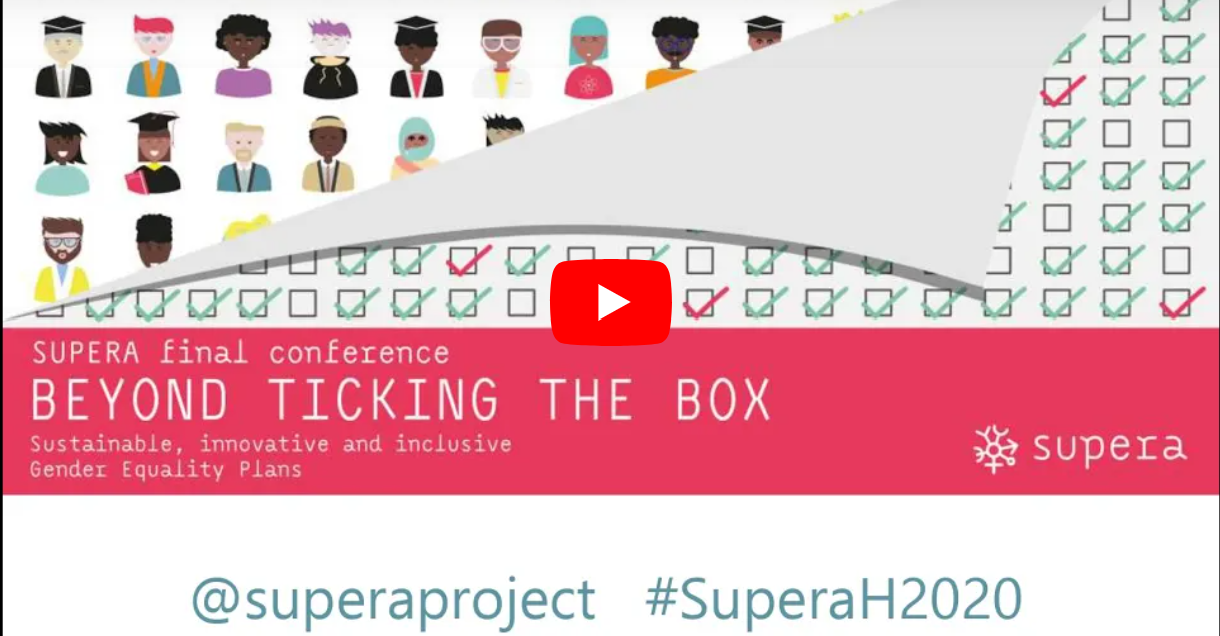SUPERA (2018-2022) a reçu le soutien de l’Union Européenne dans le cadre du programme Horizon 2020 sur la recherche et l’innovation (grant agreement No. 787829). Le projet coordonné par l’Universidad Complutense de Madrid (Espagne) rassemble 4 universités, 2 organisations de financement de la recherche et 2 partenaires experts, représentant 6 pays européens. Malgré leurs profils et expériences divers, les institutions partenaires partagent un engagement fort pour mettre en oeuvre des avancées significatives en matière d’égalité.
Au sein de SUPERA, Sciences Po conduit une évaluation impartiale et bienveillante des Gender Equality Plans (GEP), et developpe une méthodologie pour évaluer de façon robuste et objective les actions mises en oeuvre.
L’équipe Sciences Po
Maxime Forest, OFCE Sciences Po, évaluateur principal
Hélène Périvier, OFCE Sciences Po
Description
The way scientific knowledge is designed, developed and transformed into useful results for society continues to be influenced by the gender inequalities that affect our society as a whole. Gender stereotypes may for instance set a wrong context for analysis, and the male/man gender is too often used as a default mode. When research methods don’t take into due consideration the variables connected to gender, scientific results are impoverished, and a lot of opportunities are missed. The research and higher education sector has peculiarities that require specific actions to overcome this situation, which we have called “gender gap”.
The main goal of the SUPERA project is to implement six Gender Equality Plans (GEPs) in 6 organizations from Southern and Central Europe: 4 of them are Research Performing Organizations and 2 are Research Funding Organizations. The scope of a GEP may vary considerably, depending on the type of organization, on the institutional context in which it is implemented, on the main research disciplines addressed and on the type of gender biases and inequalities identified.
In general, all the Gender Equality Plans will help to articulate a deeper understanding of gender inequalities, stereotypes and biases in research and support the inclusion of a gender perspective in research and academia.
